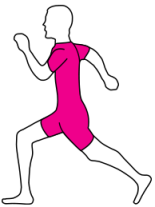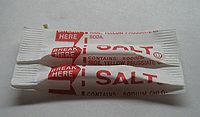 Writing has long been used as a coping strategy and has been applied to improve psychological well-being. One study found that suicidal poets used more first-person singular pronouns (I, me, my) than the control group of poets.
Writing has long been used as a coping strategy and has been applied to improve psychological well-being. One study found that suicidal poets used more first-person singular pronouns (I, me, my) than the control group of poets.This study from Taiwan, published in the Journal of Happiness Studies, investigated the psychological displacement paradigm in diary-writing (PDPD) and its supposed psychological benefits.
Study participants were randomly assigned to write about their recent negative life experiences two times a week for 2 weeks in PDPD group (diary-writing), or comparison group (no diary-writing).
The diary-writing group (PDPD) showed a decrease in negative emotion and an increase in positive emotion immediately after each writing session (short term effect).
They also had an increase in psychological well-being for at least 2 weeks (long term effect).
References:
The Psychological Displacement Paradigm in Diary-Writing (PDPD) and its Psychological Benefits. Jen-Ho Chang, Chin-Lan Huang and Yi-Cheng Lin. JOURNAL OF HAPPINESS STUDIES 2012, DOI: 10.1007/s10902-012-9321-y
Comments from Google Plus and Twitter:
Lin W: I guess blog writing might have the same effect?
Ves Dimov, M.D.: It depends on the type of blogging you do, but yes, blogging can be a positive experience too.
Dr. Amal Hasan @DrFloona: Diary-Writing Has Psychological Benefits bit.ly/wwMDmr” Until someone else reads it
Dean Giustini @giustini: Diary-Writing Has Psychological Benefits bit.ly/wwMDmr [Isn't this why we blog Ves?]
@DrVes: Well, I'm not sure. I don't blog about "negative experiences". Blog = archive for me








